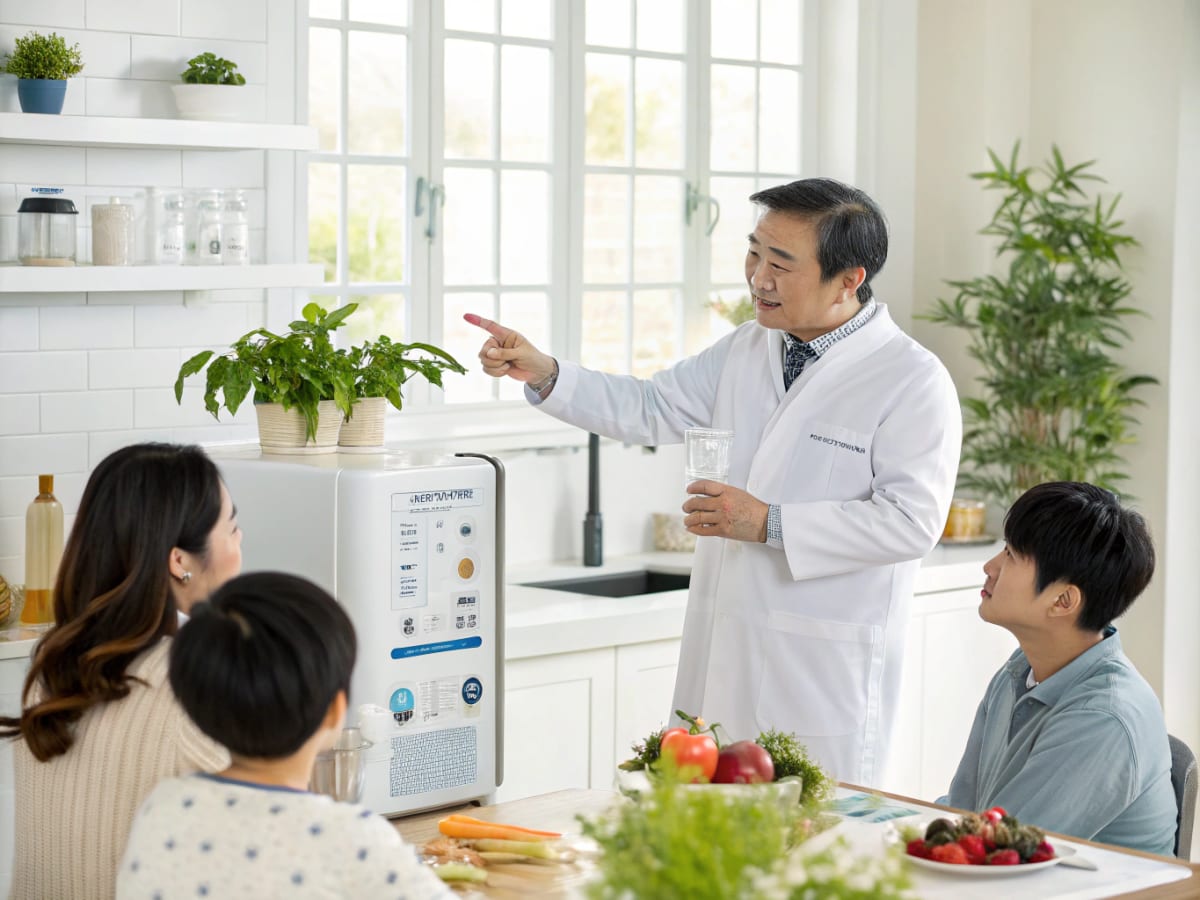Ionizer Purchase Guide: 4 Essential Checklist Items

The First Step for Your Body: 4 Must-Check Items Before Buying an Ionizer
Hello! I'm Mediquaman, your water health guardian.
Have you recently felt like your digestion isn't great or that your body feels heavy in the morning? Many people focus on eating healthy food for their well-being, but often overlook the importance of ‘water,’ which makes up 70% of our body. As more people seek ‘better water for their body’ beyond just clean water, interest in ionizers has been growing. However, when researching ionizer purchases, they often seem similar in design and full of complex terms, making it hard to choose the right product.
Today, I'm here to provide a clear guide. Since it's a health appliance, it's important to scrutinize and choose wisely. I'll give you the core information you need to know.

Essential Checklist for Choosing an Ionizer Without Failure
A good ionizer is different from a simple water purifier. It electrolyzes water to produce alkaline ion water beneficial for the body, and acidic ion water that can be used for skin care and other external purposes. Therefore, when buying an ionizer, be sure to check the following four items.
- Food and Drug Administration (MFDS) Medical Device Approval
- The Core of Ion Production, Electrolytic Cell Performance and Materials
- The Basics of Basics, Filter Purification Performance
- Is it Convenient to Use Daily, User Convenience
Knowing these four criteria accurately will help you choose the right product for your home. Let's take a closer look at each item.
Detailed Functions Defining a Good Ionizer AtoZ
1. ‘Medical Device Approval’ as the Basic Condition of Safety and Efficacy
The first and most important thing to check is whether it has received medical device approval from the ‘Food and Drug Administration (MFDS).’ Ionizers are approved as medical devices only if they can help improve gastrointestinal symptoms such as chronic diarrhea, indigestion, excess stomach acid, and abnormal fermentation in the stomach. This approval indicates that not only the safety, but also the functionality and efficacy of the product, have been verified by national authorities. Therefore, make sure the ‘medical device approval’ is clearly stated in the product's detailed description.
2. The Heart of the Ionizer, Electrolytic Cell Performance
The electrolytic cell is the core component of an ionizer that divides water into alkaline and acidic water through electrolysis. The quality of the ionized water is determined by this electrolytic cell's performance. When examining the electrolytic cell, pay attention to the ‘electrode material’ and the ‘number of electrodes.’ ‘Platinum titanium’ is a highly corrosion-resistant and human-friendly material commonly used for electrodes, offering advantages in durability and safety. Additionally, the more electrodes there are, the more efficient the electrolysis, allowing for stable ion water production.
3. Clean Water is the Basic, Filter System
No matter the good features, if the source water isn't clean, it’s useless, right? The ionizer’s basic feature is purification capability. Although the number and types of filters may differ by product, it’s advisable to ensure a composite filter system is in place that performs multiple filtration stages. This allows for the removal or reduction of harmful substances such as residual chlorine, fine particles, and heavy metals, while retaining some mineral content. Considering filter replacement cycles and costs will also help with long-term maintenance management.
Mediquaman’s Ion Water Usage Tips
Ionizers can be used for more than just drinking alkaline ion water.
- Using Alkaline Ion Water: Start by drinking water with a pH of about 8.5 to give your body time to adapt. Using it as cooking water or when brewing tea can make a noticeable difference in the texture and taste of food.
- Using Acidic Ion Water: Acidic water is for external use, not for drinking. Use it in the final step of washing your face or for cleaning kitchenware, or when washing vegetables.
Actual User Reviews and Frequently Asked Questions (FAQ)
“I used to often feel bloated and had digestive issues. After a friend's recommendation, I started using an ionizer and have noticed a clear improvement in my digestive comfort after drinking alkaline water consistently. Now, starting my day with a glass of alkaline water has become a routine.”
Q. Is it okay to drink alkaline ion water with medication?
A. No, it’s recommended to take medication with regular purified or bottled water, as alkaline ion water can affect drug absorption. It’s best to avoid consuming alkaline water within 30 minutes before and after taking medication.
Q. Do I need to install it myself?
A. Most products are installed by professionals who visit your location. They can be installed to fit your sink environment, so there’s generally no inconvenience in use.
We recommend ionizers to:
- Those suffering from chronic indigestion or stomach issues
- Those who want to take care of their family’s health with functional water beyond just purification
- Those who wish to expand the use of water from drinking, cooking, to skincare
A healthy habit starts with a good glass of water.
Consistent water health management involves more than just drinking water – it depends on which water you choose. An ionizer can be a good option for more functional use of water. Before choosing a product, refer to the criteria shared today to enhance the quality of water in your daily life. Should you have any further questions, please contact Mediqua for more information.

Comments
Post a Comment